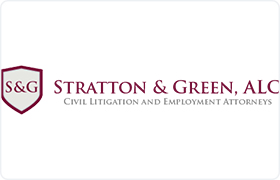Grand Terrace Bankruptcy & Debt Lawyer, California
Sponsored Law Firm
-
 x
x

Click For More Info:
-
Stratton & Green, ALC
3703 Camino Del Rio S Suite 100B San Diego, CA 92108» view mapBankruptcy & Debt Law Exceptional Advocates.
Stratton & Green is proud to serve as a modern advocate, in that it takes an innovative approach by not only litigating cases through trial but whenever possible.
800-803-3091
Ame L Strauss
Commercial Bankruptcy, Corporate, Landlord-Tenant, Federal
Status: In Good Standing Licensed: 54 Years
Bryan Scott Owens
Employee Rights, Corporate, Credit & Debt, Medical Malpractice, Construction
Status: In Good Standing
Bryan Calvin Hartnell
Wills, Trusts, Wrongful Termination, Bankruptcy
Status: In Good Standing Licensed: 49 Years
Christian Uchechukwu Anyiam
Traffic, Employment, Bankruptcy & Debt, Accident & Injury
Status: In Good Standing Licensed: 23 Years
 Sabrina Green San Diego, CA
Sabrina Green San Diego, CA Practice AreasExpertise
Practice AreasExpertise
